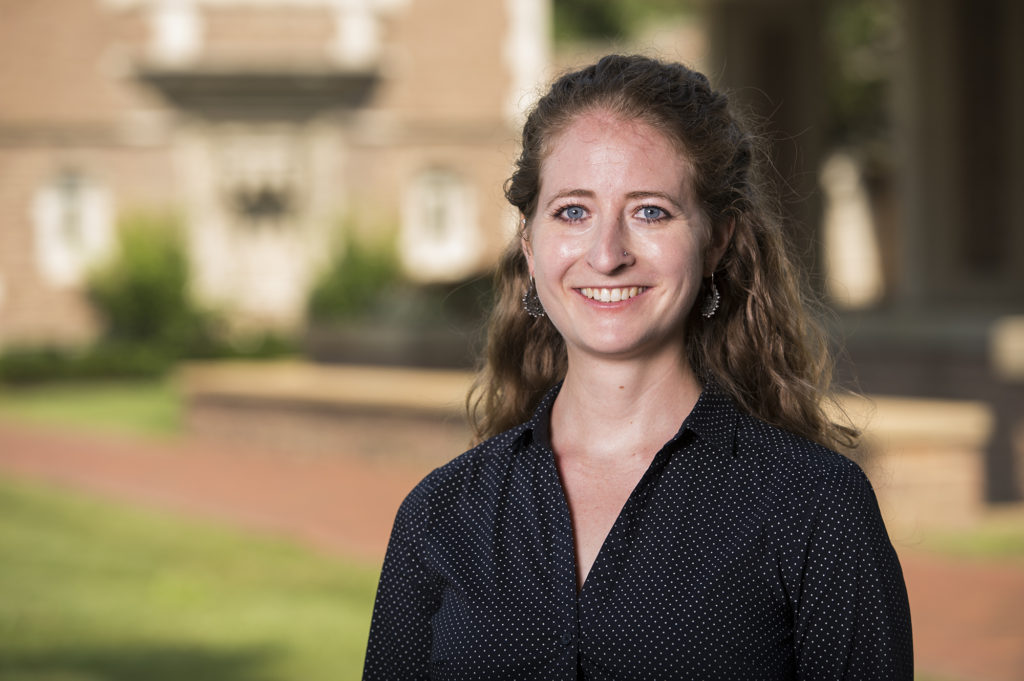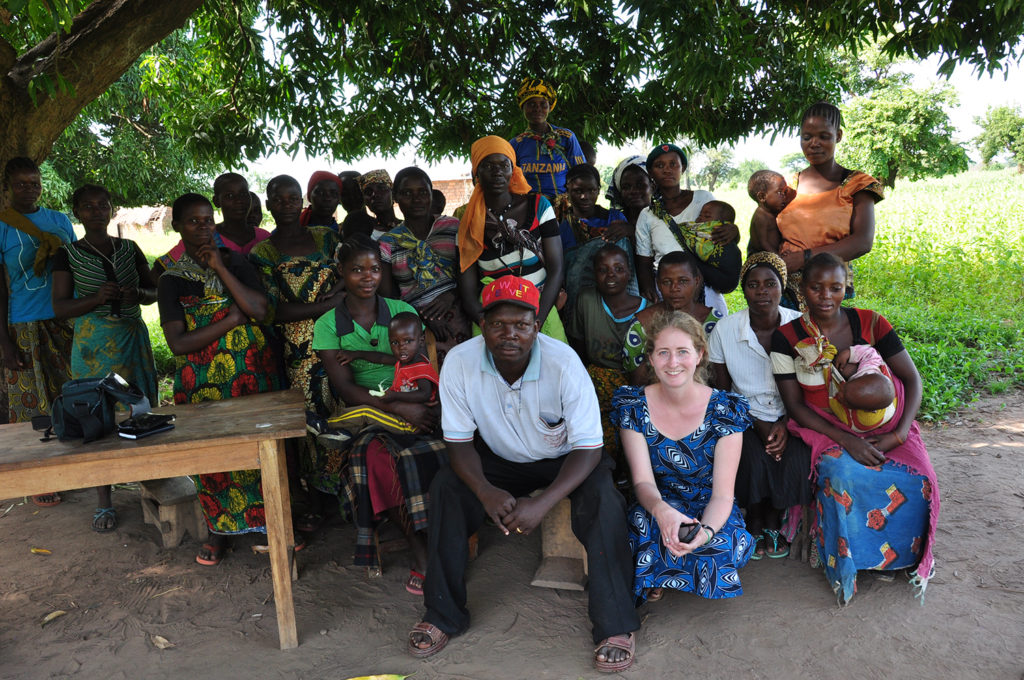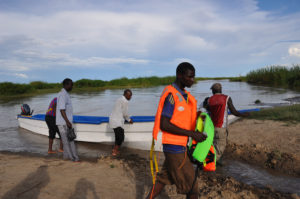
Adrienne Strong settled down for a cup of coffee at Kayak’s looking a bit anxious, checking her phone again and again. This graduate student had more than a dissertation on her mind.
“I’m a doula,” Strong said, apologizing for having her phone out. “I have a patient who’s about to go into labor! She’s a first-time mom, so I’m very excited.”
Strong, a PhD candidate in anthropology in Arts & Sciences at Washington University in St. Louis, has researched maternal health and mortality in Tanzania for years. She wanted to also offer a useful set of hands while conducting her research, which totaled 1,600 hours on the maternity ward at the Sumbawanga hospital.
“I wanted to have some skills in terms of support, pain management and coping that I could offer these women if I was going to be on a maternity ward for such a long time,” Strong explained.
Strong’s interest in maternal health developed on her first trip to Tanzania in 2007. At the time, she was an undergraduate at The Ohio State University determined to go to medical school. In Tanzania, she shadowed an OB-GYN at a local hospital and watched the autopsy of a woman who died at the end of her pregnancy along with her full-term baby.
“I felt like, as a global community, we have the knowledge, resources, know-how and money to prevent these kinds of deaths — so why was it that some people still have to die this way?” Strong said. “It was that year that I started taking anthropology classes at Ohio State.”
She dominated the office hours of her anthropology professors with a thirst for more information and insight, and she ultimately decided against medical school.
She received a Fulbright grant to study barriers to health-care services during pregnancy and childbirth in Tanzania before enrolling in graduate school at Washington University. Along the way, she learned how much work and perseverance graduate work requires, as well as the need to adapt your plans.

For her dissertation research and fieldwork, Strong traveled to Sumbawanga, Tanzania. She knew little about the region other than its low ranking on all measures of maternal and reproductive health in the National Demographic and Health Survey. Strong set out to explore health facilities, community dispensaries and regional hospitals.
“When I got back, I thought ‘I feel like these places that should be helping women, sometimes aren’t so helpful in certain ways.’ I said something to this effect to my adviser, Carolyn Sargent, and she said, ‘Well maybe you should do something with that,’” Strong said.
The World Health Organization suggests that if women give birth in hospitals rather than at home, maternal deaths will decline dramatically. Strong planned to study why so many women still give birth at home, but she found that community members instead wanted to discuss the low motivation and poor attitudes of health-care providers.
Strong considered the regional hospital’s social and bureaucratic environment and how those factors influence women’s experiences as patients.
“Why don’t we go through these doors we’re telling everyone to go through to see what’s happening in this environment?” she said.
Sargent, professor of sociocultural anthropology and of women, gender and sexuality studies in Arts & Sciences, said Strong’s research is making “truly significant” contributions to global health policy.
“In the course of her graduate training, Adrienne’s done outstanding work in expanding the depth and scope of her knowledge about hospitals as institutions, in general and in historical perspective,” Sargent said. “She has developed expertise on health care in East Africa and on maternal and child health-care policies worldwide.”
She also admired how quickly Strong realized the importance of language facility to her work. Strong took every Swahili class available after her first trip to Tanzania and has become fluent. She conducted focus-group discussions with more than 475 community members, leaders and health-care providers, plus over 50 individual interviews, all in Swahili.
“She improved her language competence to the level where she could interview anyone she wanted to in a way that they felt comfortable speaking to her,” Sargent said.
Strong’s fluency allowed her to connect with the community and develop a network.
“It’s the opportunity to interact with so many different people, to hear their stories, and to give them the opportunity to talk to me about things no one has ever asked them about before,” Strong said. “I feel really inspired by them, and I’m motivated to try to make their insights heard and help us learn from those.”

Strong listened — and responded — to the community’s need for a boat. Lake Rukwa divides the region, making it difficult for people to get from villages to the health center on the lake’s other side. With the help of University United Methodist Church in St. Louis, Strong raised over $10,000 to buy the boat, which has improved people’s access to medical care.
“I got more applause than all of the government officials” at a ceremony, Strong recalled. “A year and a half later, people were still seeing me in town saying, ‘Oh the boat! You helped bring the boat!’”
During her final year of graduate school, Strong will work on a joint degree at the University of Amsterdam through the Trans-Atlantic Forum exchange program. She hasn’t decided what to do after she graduates in May, but she’s applying to positions both inside and outside academia.
“Adrienne is an exceptionally autonomous, self-sufficient young woman. I think this is evident in how assertive she’s been in making it possible to do the things she wants to do. She sees how pieces fit together,” Sargent said. “She’s the kind of student who is a privilege to work with.”